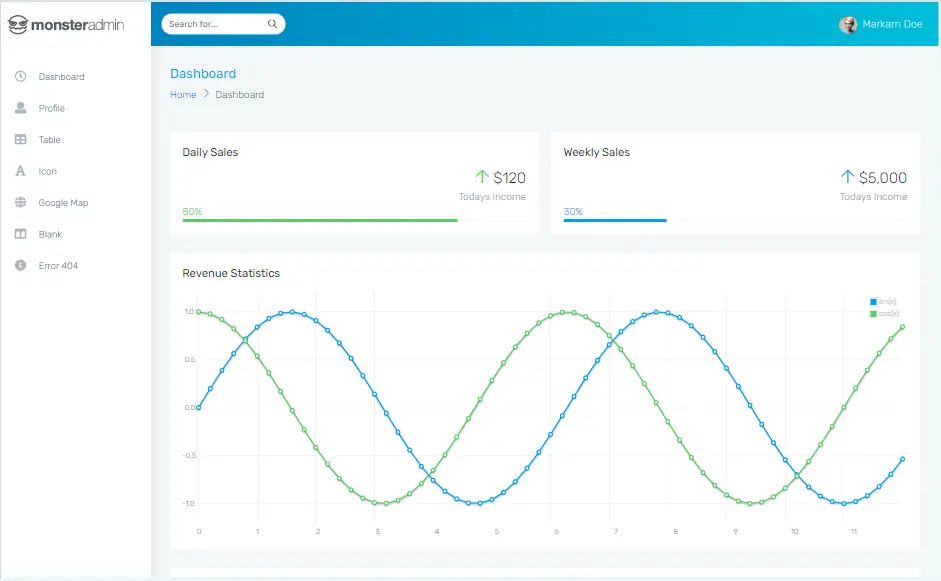Handling Serialization Issues in .NET Core
By Tan Lee Published on Jan 10, 2025 983
The Problem
After adding exception handling to my API, I noticed that instead of returning the appropriate 400 Bad Request error for invalid inputs, the API consistently returned a 500 Internal Server Error with the following exception:
System.NotSupportedException: Serialization and deserialization of 'System.IntPtr' instances are not supported. Path: $.TargetSite.MethodHandle.Value.
Upon further investigation, it became clear that the built-in System.Text.Json serializer in .NET Core cannot serialize certain exception types, such as IntPtr instances, which led to this error.
Here's an example of my controller where exceptions should ideally result in a 400 BadRequest:
namespace MyController
{
[ApiController]
[Route("api/public/v{version:apiVersion}/[controller]")]
public class MyController : Controller
{
[HttpGet("{id}")]
public async Task<IActionResult> GetData([FromRoute] int id)
{
try
{
// Simulate some logic
}
catch (Exception ex)
{
return BadRequest(ex);
}
}
}
}However, any error that occurs within the try block results in a generic 500 error, which is not helpful for clients.
When returning an exception object, the serializer tries to convert the entire exception, including internal details like MethodHandle.Value (which holds an IntPtr), into JSON. Since IntPtr cannot be serialized, this results in an unsupported type exception, leading to the generic 500 error.
To solve this, we need to avoid directly serializing exceptions and instead return a more manageable object that can be easily serialized. A common solution is to return a ProblemDetails object, which is designed for conveying detailed error information in a standardized format.
I created an extension method to convert exceptions to ProblemDetails:
using Microsoft.AspNetCore.Mvc;
using System.ComponentModel.DataAnnotations;
using System.Net;
using System.Security.Authentication;
namespace MyApp
{
public static class ExceptionExtensions
{
public static ProblemDetails ToProblemDetails(this Exception e)
{
return new ProblemDetails()
{
Status = (int)GetErrorCode(e.InnerException ?? e),
Title = e.Message
};
}
private static HttpStatusCode GetErrorCode(Exception e)
{
switch (e)
{
case ValidationException _:
return HttpStatusCode.BadRequest;
case FormatException _:
return HttpStatusCode.BadRequest;
case AuthenticationException _:
return HttpStatusCode.Forbidden;
case NotImplementedException _:
return HttpStatusCode.NotImplemented;
default:
return HttpStatusCode.InternalServerError;
}
}
}
}Now, instead of returning the raw exception, we convert it to a ProblemDetails object that can be easily serialized to JSON.
Updated Controller
Here’s how you can implement this solution in your controller:
namespace MyController
{
[ApiController]
[Route("api/public/v{version:apiVersion}/[controller]")]
public class MyController : Controller
{
[HttpGet("{id}")]
public async Task<IActionResult> GetData([FromRoute] int id)
{
try
{
// Simulate some logic
}
catch (Exception ex)
{
return BadRequest(ex.ToProblemDetails());
}
}
}
}By using the ProblemDetails object instead of directly returning exceptions, you avoid serialization issues and can ensure that error responses are properly structured and easily parsed by clients.
- Implement security headers for an ASP.NET Core
- How to add security headers to an ASP.NET Core Application
- How to Initialize TagHelpers in ASP.NET Core with Shared Data
- Boost Your ASP.NET Core Website Performance with .NET Profiler
- The name 'Session' does not exist in the current context
- Implementing Two-Factor Authentication with Google Authenticator in ASP.NET Core
- How to securely reverse-proxy ASP.NET Core
- How to Retrieve Client IP in ASP.NET Core Behind a Reverse Proxy





